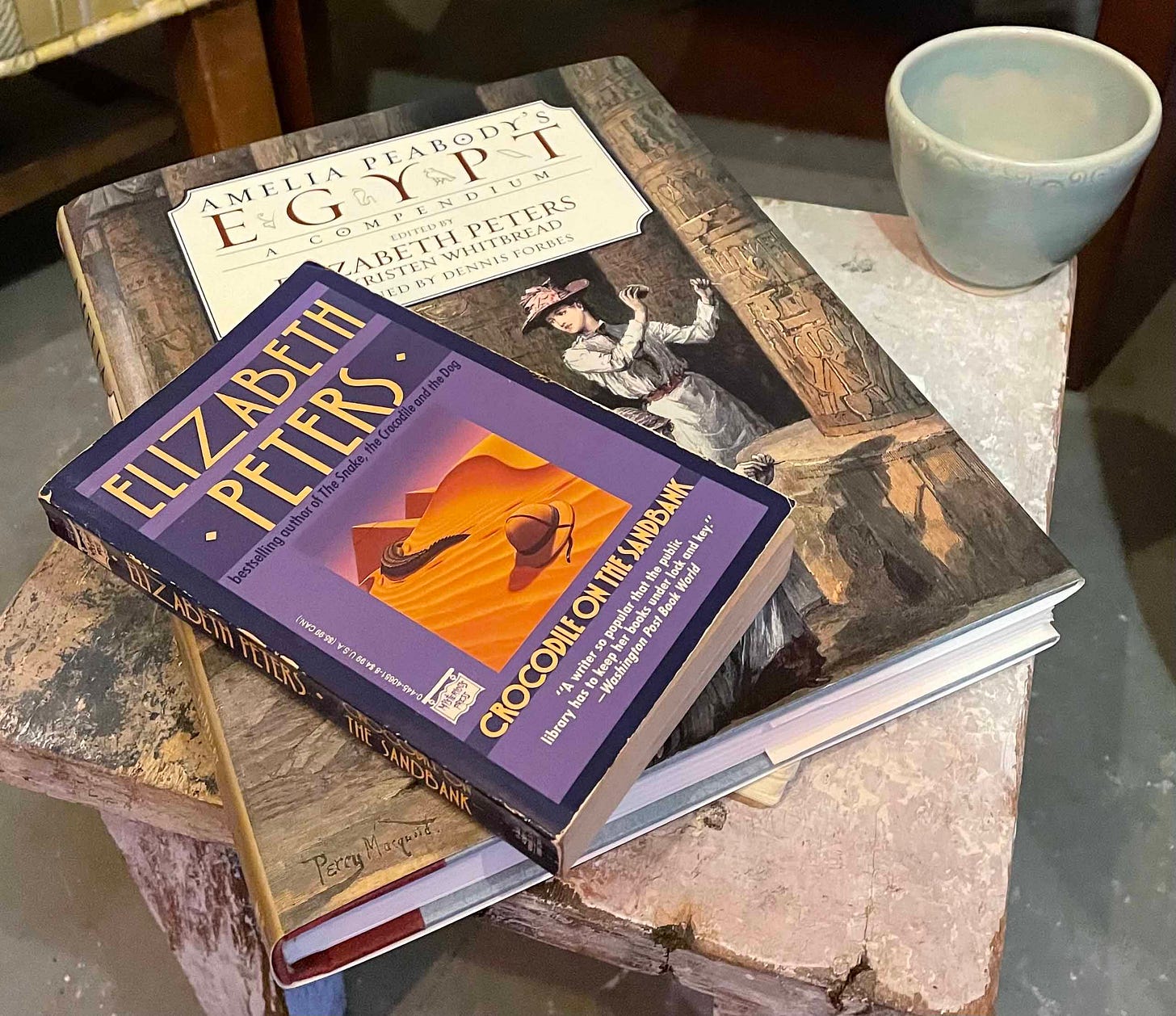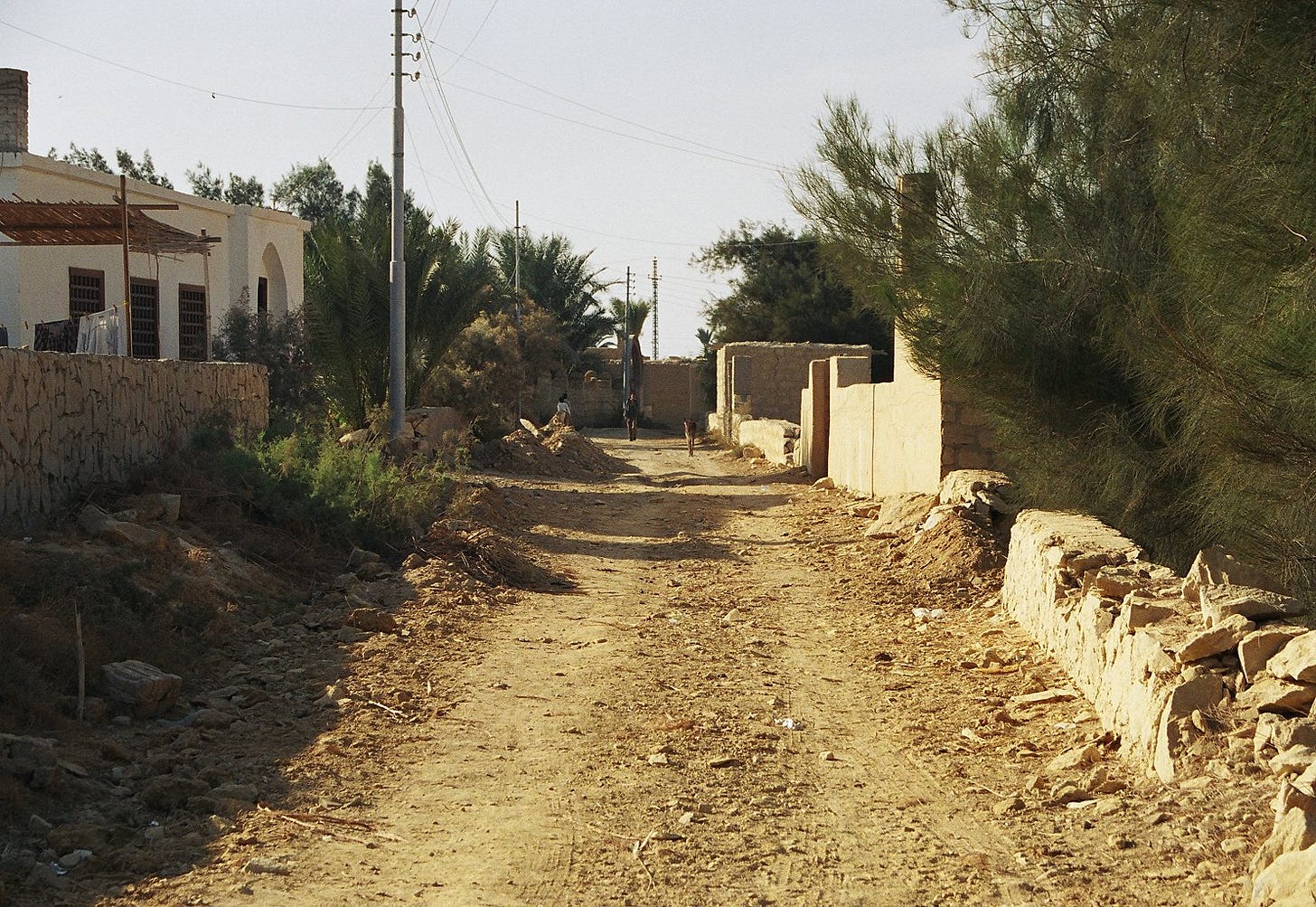Imagining the Past: Historical Fiction
Remembering those books that came along at just the right moment to entertain and inspire
One of the most common questions any Egyptologist gets is, “So, how did you get into Egyptology?” As Kara likes to say, the answer to this seemingly straightforward and innocuous question can be complicated. That being said, while the DNA of the origin of every Egyptologist’s compulsion to pursue the study of ancient Egypt is unique, many share a common gene for another obsession: reading. Kara, Jordan, and I all enjoy reading for pleasure and have eagerly consumed books of all genres since childhood. Our recent Book Club episode for Afterlives of Ancient Egypt featured Elizabeth Peters’ Crocodile on the Sandbank and reminded me of just how much fictional writing—especially historical fiction—plays an early role in inspiring future historians. Novels may be fiction, but they are places where young readers discover new ideas and learn about the world. It was in the pages of an Elizabeth Peters novel that I first discovered that “Egyptology” was a word, let alone an academic discipline—a bit of information acquisition that would have lasting consequences for me. When done well, historical fiction approaches history with imagination and reveals the common threads of human experience that we share with those who lived in the past. I would argue that in many ways this is also what historians do—the difference being that they spin documents and data into an evidence-based narrative about those who lived in the past rather than fictional stories.
While you won’t find any dramatic obstacles to overcome or tall, dark, and handsome love interests who inspire an irrisistable slow-burn attraction in academic history writing, the most memorable histories to read are those that succeed in infusing humanity into the past so that we can better understand history and by extension the present. This happens to be a strength of Kara’s and Barbara Mertz’s (a.k.a. Elizabeth Peters) popular books on Egyptology. Both Kara’s The Woman Who Would Be King and Mertz’s Red Land, Black Land instantly pull the reader in by capturing an imagined moment of drama, emotion, and ritual. By putting the human experience front and center, they remind readers that the ancient Egyptians were very much like us. I don’t think it’s an accident that the histories that so effectively draw the reader into the past were written by scholars who were avid readers.
I’d also wager that, historian or not, there are many people who can look back at moments throughout their life and say that if a certain book (or books) had never come into their hands, their life’s path may have taken a completely different course. This can apply to books read at any time in life, but I think this is especially true of books (and really any media) consumed between the ages of about 11 to 16. I can’t help but think of the scene in You’ve Got Mail where Kathleen Kelly (Meg Ryan), caught up in talking about her love of her children’s bookstore and growing up watching her mother sell books to children, says, “And it wasn’t just that she was selling books, it was that she was helping people become whoever it was they were gonna turn out to be. Because when you read a book as a child, it becomes a part of your identity in a way that no other reading in your whole life does…”
And so, in honor of our inaugural Afterlives of Ancient Egypt Book Club episode (the first of many, we hope!), I wanted to take a moment to express gratitude for those books that came along at just the right moment to expand our—mine, Jordan’s and Kara’s—world, ideas, and imagination ensuring that we would never be the same again and—in some cases—set us on a path that led to real-life adventures and even romance. Such a post wouldn’t be complete without sharing the books that we’ve loved since childhood (and some we’ve discovered in more recent years!). Below are a few of the books that stuck with us long after the final page was turned.
Amber
A String in the Harp by Nancy Bond
The Mummy Case by Elizabeth Peters
Doomsday Book by Connie Willis
Jordan
Troy by Adele Geras
The Roman Mysteries by Caroline Lawrence
Mask of Ra by Paul Doherty
Kara
Mists of Avalon by Marion Zimmer Bradley
Circe by Madeline Miller
Valley of the Horses by Jean M. Auel (which taught me about other things too haha)
Maybe books should come with warning labels—“WARNING: May have lasting side effects and inspire questionable career choices”—or be accompanied by a mysterious, vaguely threatening wizened old woman hoarsely cautioning your choice as you reach for that particular book. All things considered, it is not surprising that many of us who regularly got lost in the pages of books, exercised our imaginations, and experienced stories of other times and places in our formative years ultimately chose history as a profession. As it turns out, that book made all the difference.






I have also read The Mists of Avalon, and The Valley of the Horses, all the books of the Clan of the Cave Bear series. A good book to fire the imagination, highly recommend.